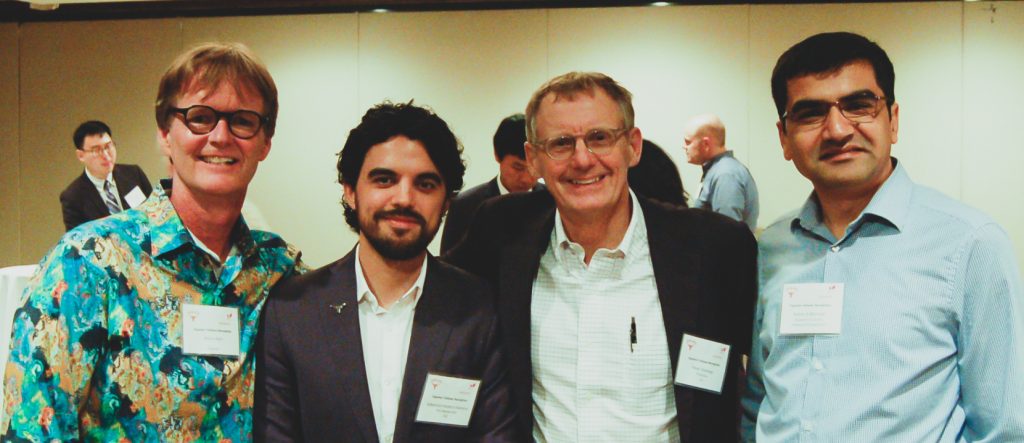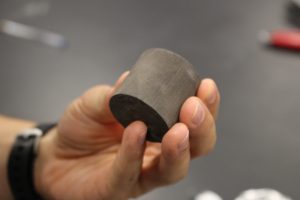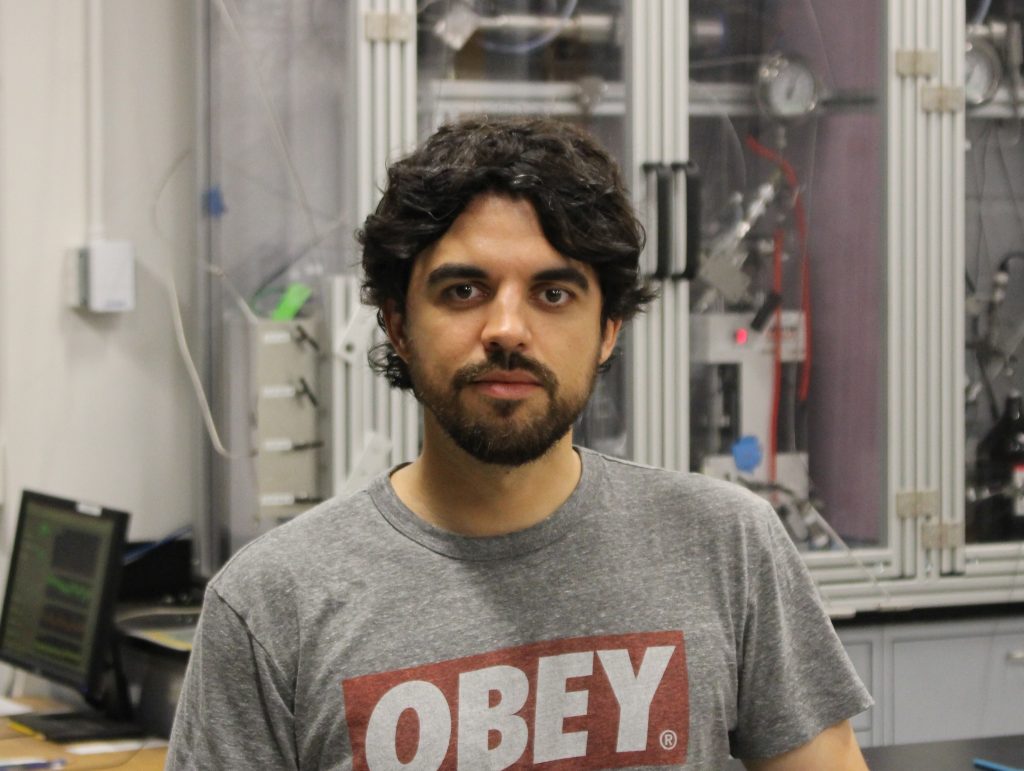
The University of Texas at Austin (UT) is a leader in unconventional energy resources research, particularly shale reservoirs. That’s according to one of this year’s Equinor Fellows, Sebastian Ramiro-Ramirez, a graduate research assistant at UTIG and a PhD student at the University of Texas Jackson School of Geosciences, who was awarded over $60,000 to study the rock properties of unconventional oil and gas reservoirs.
“It’s a great feeling,” said Sebastian, “because it recognizes the great work our research group and many others are doing at UT.”
The Equinor Fellows Steering Committee described this year’s selection as very competitive and confirmed that Sebastian’s research proposal and achievement were significant.
Sebastian said that the fellowship was a great personal achievement. “I learned I’d been selected right after class,” said Sebastian. “I came out of class feeling the same way I did after I passed my qualifying exams – it was such a great feeling!”
Sebastian’s PhD advisor, Peter Flemings, who is a Professor at the Jackson School’s Department of Geological Sciences and a senior UTIG research scientist said: “Sebastian’s selection as an Equinor Fellow recognizes the contributions our group is making to understand the in-situ flow behavior of very low permeability, so called ‘nano-Darcy’ rocks. More importantly, it recognizes Sebastian’s ability to both make these measurements and recognize their role in the larger scale processes of production from shale.” Flemings also holds the Jackson Chair in Energy and Mineral Resources at the University of Texas at Austin.

In conventional reservoirs, oil and gas collect and form subsurface pools within permeable rock, such as sandstone, becoming trapped beneath a ‘cap’ of impermeable rock. Unlike sandstone, shale has very low permeability with only very tiny pores. Extracting hydrocarbons from these requires very different methods, such as hydraulic fracturing: for this reason, shales are known as unconventional reservoirs. UT has decades of experience studying the geological characteristics and geophysics of unconventional reservoirs through work led by the Bureau of Economic Geology and Department of Petroleum and Geosystems Engineering supported by UTIG and the Department of Geological Sciences.
Peter Flemings’ research group, of which Sebastian is a member, specializes in measuring how fluids flow in the high-pressure environment where such rocks are found. According to Flemings, this requires incredibly expensive equipment, very experienced researchers, and patience.
“There is nobody that competes with us in this sphere,” said Flemings. “We are one of the more experienced groups to understand the broad problem of how rocks relate to pressure and stress and ultimately the implications for production. In fact, Sebastian’s proposal sits right at this interface.”
Although unconventional reservoirs are likely to play a significant part in meeting the worlds energy needs for the future, their extraction is costly, risky and typically inefficient. Athma Ram Bhandari, a research associate at UTIG, says that work conducted at UT’s state-of-the-art shale geomechanics lab by Sebastian and others in the Flemings research group is key to maximizing and maintaining production from unconventional energy resources.
“Our research also has broad implications in environmentally important issues,” added Dr. Bhandari, “for example, carbon capture methods such as geological carbon sequestration and the secure geological disposal of radioactive waste.”
The fellowship will fund Sebastian to study how fluids and rocks interact in unconventional reservoirs. Understanding how fluids move through these reservoirs is important to industry scientists who can use this information to improve hydraulic fracturing designs and predict how much oil can be extracted from a particular reservoir.
Sebastian explains that although hydraulic fracturing, or fracking, has been around since the 1970s, it is far from perfect and only became economically viable in the last decade. The process involves creating fractures in shale rock deep underground by injecting water, or another ‘fracking fluid’, at high pressure. Hydrocarbons trapped in the shale are able to flow up the artificially created fractures and into the well. “The problem is they don’t really know what these fractures look like, their extension and geometry, or how fluid flows through the rocks around them,” explained Sebastian. “If we can understand the physics in this process and explain the petrophysical properties of the rocks surrounding the fractures it will be very important for production.”

Sebastian plans to combine his own lab work with field data from a ‘Mini Frac’ test, essentially a small-scale hydraulic fracture where water is injected into a well to create a small, measurable fracture. Sebastian will compare the permeability estimated from the ‘Mini Frac’ test data with what his own lab measures to build realistic simulations that industry can use to design future well completion designs.
“This kind of test is a new field for me and takes me out of my comfort zone,” said Sebastian, “but I worked very hard to quickly broaden my knowledge so it’s a great feeling to receive this acknowledgment.”
Sebastian says his research will also be important for a process called enhanced oil recovery, where liquid or gas can be used to sweep up any remaining hydrocarbons within a reservoir, helping companies extract the most out of each well and making production more efficient.
Sebastian was officially recognized as a fellow on Wednesday, April 24, 2019, during a ceremony at the UT Club hosted by the Equinor Fellows steering committee. The steering committee is made up of Equinor representatives and UT research scientists from the Bureau of Economic Geology and the University of Texas at Austin Department of Petroleum and Geosystems Engineering.
